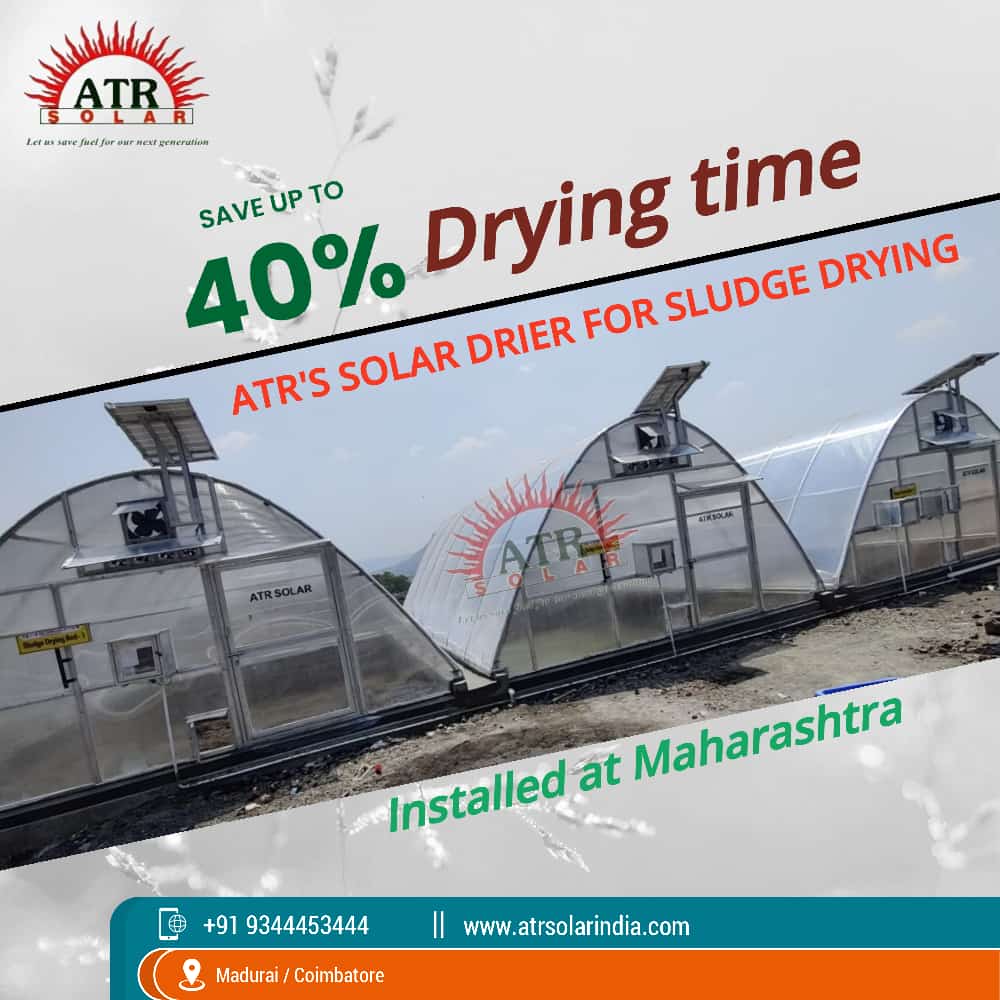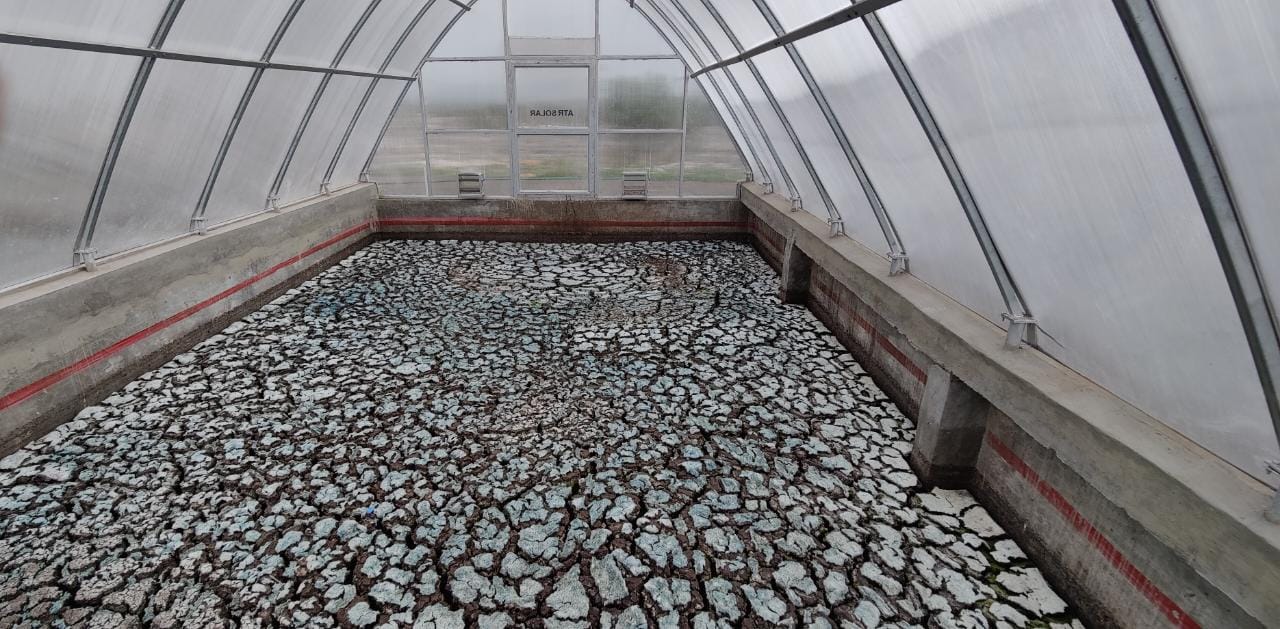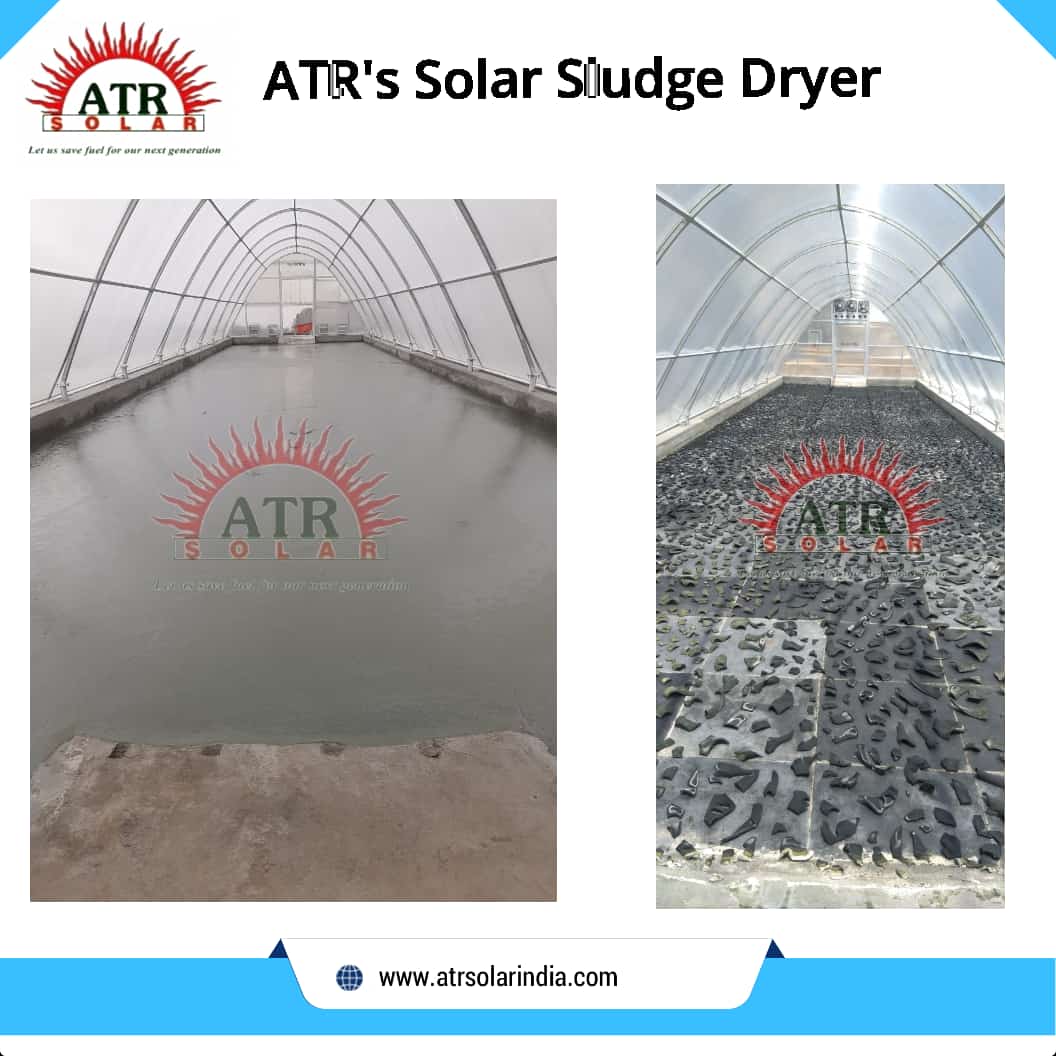- ATR Solar has installed more than 1.5 lakhs sq. ft. of solar green house dryers in India for Sludge drying applications like ETP sludge drying for Industries and FSTP Sludge drying
- The dryer uses renewable solar energy to dry sludge, a more environmentally friendly energy source than that used for conventional dryers
- Solar drier reduces the drying time around 40% of existing open sun drying
- The dryer can also be used for drying agricultural waste, dyes, and chemicals which are not radiation sensitive
SOLAR SLUDGE DRYING
Sludge drying is the process of removing moisture from sludge, a semi-solid mixture of water and solids, to produce a dry, solid material that can be safely disposed of or reused. Sludge drying methods include:
- Solar drying: Using solar radiation to evaporate water.
- Mechanical drying: Using machines like centrifuges or filter presses.
- Thermal drying: Using heat from fuels or waste gases.
- Belt drying: Using a conveyor belt to dry sludge.
- Dryer drums: Using rotating drums to dry sludge.
Sludge drying benefits include:
- Reduced volume for easier disposal
- Improved handling and storage
- Increased calorific value for energy production
- Reduced environmental impact
- Potential for reuse as fertilizer or fuel.
Sludge drying is commonly used in wastewater treatment plants, industrial processes, and agricultural applications.
SOLAR DRIER FOR FSTP SLUDGE DRYING
Solar FSTP (Faecal Sludge Treatment Plant) drying is a technology that utilizes solar energy to dry and treat faecal sludge. The process involves:
- Sludge treatment: Faecal sludge is treated to remove pathogens and reduce volume.
- Solar drying: Treated sludge is spread onto a solar drying bed, where solar radiation evaporates the water content.
- Water evaporation: Water evaporates, reducing the sludge volume and producing a dry, pathogen-free material.
- End product: The dried material can be used as fertilizer, fuel, or disposed of safely.
Solar FSTP drying offers several benefits, including:
- Energy efficiency
- Low operating costs
- Minimal greenhouse gas emissions
- Improved public health and sanitation
- Reduced environmental impact
This technology is particularly suitable for areas with high solar irradiance and limited access to conventional energy sources. It’s an innovative solution for sustainable faecal sludge management, promoting a circular economy.




